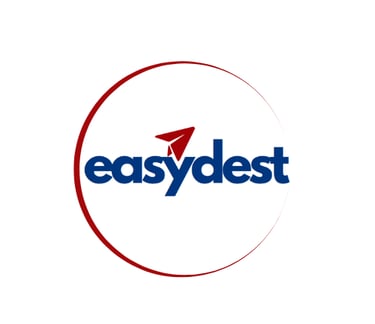
Exploring the Strengths of Leading Online Learning Platforms: Edx ,Udemy and Coursera
EDTECH
4 min read

The Rise of Online Learning
In recent years, online learning has witnessed exponential growth, largely propelled by technological advancements and the need for flexible education solutions. The digital age has transformed traditional educational paradigms, allowing learners from diverse demographics, including students, professionals, and businesses, to access a wealth of knowledge at their convenience. This shift from conventional classroom settings to virtual platforms underscores a notable trend: the increasing accessibility of education.
Technology has played a crucial role in democratizing learning opportunities. With the rise of high-speed internet, mobile devices, and interactive tools, online learning platforms have become more user-friendly and engaging. By offering courses on demand, these platforms enable learners to tailor their educational experiences to suit their busy schedules. Notably, platforms such as Udemy, Coursera, and edX have significantly expanded the scope of learning by providing a diverse array of subjects and professional skills that cater to various interests.
Statistics reveal a remarkable increase in online education enrollment. According to recent reports, over 40% of college students in the United States have taken at least one course online, and this trend is similarly observed across global markets. This data highlights the potential of online learning to address the needs of those seeking career advancement or a shift in professional focus. Moreover, businesses are increasingly investing in online training programs to ensure their workforce remains competitive, further emphasizing the role of virtual learning platforms in today’s economy.
The versatility offered by online learning platforms is appealing to a wide range of users, enabling them to pursue their educational goals at their own pace. As this trend continues to flourish, it sets the foundation for exploring how specific platforms like Udemy, Coursera, and edX are shaping the future of education.
Overview of Udemy: Courses for Everyone
Udemy is an established online learning platform known for its extensive range of courses designed to cater to diverse interests and skill levels. With over 150,000 courses available, Udemy serves as a comprehensive resource for individuals looking to learn new skills in various fields, including technology, business, arts, and personal development. This variety makes it an ideal choice for anyone seeking to enhance their knowledge or explore new hobbies.
The user-friendly interface of Udemy is a significant draw for learners. The platform allows users to search for courses based on subject matter, skill level, or even instructor ratings, facilitating an efficient learning experience. Moreover, Udemy’s learning management system is structured to support both individual and corporate users. This flexibility accommodates different learning styles and paces, enabling users to navigate through content at their convenience.
One of the standout features of Udemy is that once a user enrolls in a course, they receive lifetime access to that course material. This advantage empowers learners to revisit lessons or update their knowledge as industries evolve without incurring additional costs. Furthermore, many courses offer downloadable resources, enabling practical learning opportunities beyond just video lectures.
Upon successful completion of a course, Udemy provides certificates that learners can share on their resumes or LinkedIn profiles. This certification process not only enhances a learner's qualifications but also demonstrates commitment to professional development. As online learning continues to rise, Udemy's diverse course offerings and accessible features make it a prominent choice for individuals pursuing growth in both personal and professional pursuits.
Coursera: Partnering with Top Universities and Companies
Coursera has established itself as a prominent online learning platform by forming partnerships with leading universities and organizations worldwide. This strategic collaboration has enabled Coursera to provide a diverse array of educational programs tailored to meet the evolving needs of learners. By joining forces with esteemed institutions such as Stanford, Yale, and the University of London, Coursera offers courses that not only provide foundational knowledge but also uphold academic rigor and credibility.
Among the offerings on Coursera, learners can choose from a variety of options, including full degrees, specializations, and professional certificates. Full degree programs allow students to earn accredited qualifications from recognized universities, which can significantly enhance their educational credentials. Additionally, the specialization courses give learners the opportunity to dive deeper into specific fields, acquiring advanced knowledge and skills that are essential for career progression. Certificates from professional courses are particularly appealing for individuals seeking to upskill or pivot to new career paths, thereby boosting their employability in today’s competitive job market.
Furthermore, Coursera’s curriculum is heavily focused on the skills that are increasingly in demand across various industries. These skills, such as data analysis, programming, and project management, align closely with current job market trends, making Coursera an attractive option for those looking to advance their careers. By providing high-quality educational resources, Coursera not only prepares learners for immediate job opportunities but also equips them with skills for future growth in their respective fields.
In conclusion, through its partnerships with top universities and organizations, Coursera stands out as a leading online learning platform. It offers a comprehensive range of programs that not only cater to academic aspirations but also address essential skills needed for success in the modern workplace.
edX: Learning from the Ivy Leagues
edX is a prominent online learning platform that stands out for its collaborations with leading educational institutions, including Ivy League universities. Founded by Harvard University and the Massachusetts Institute of Technology (MIT) in 2012, edX offers learners worldwide free access to a plethora of high-quality course materials. This unique feature democratizes education by allowing individuals from various backgrounds to explore diverse subjects without financial barriers. Learners are provided with an opportunity to engage with course content developed by renowned professors from prestigious institutions, which enhances the value of their educational experience.
Additionally, edX goes beyond just providing free materials by offering verified credentials upon course completion. This allows learners to obtain recognized certifications that can bolster their resumes and demonstrate their commitment to professional development. By achieving these credentials, individuals can gain a competitive edge in the job market, signaling to employers that they possess the requisite skills and knowledge. This aspect of edX's offerings is particularly beneficial for adults looking to upskill or transition into new career paths.
Moreover, EDX aims to contribute to a more equitable education system. The platform supports thousands of learners around the globe, regardless of their socioeconomic background. Through various initiatives, including financial aid and flexible payment options, edX is dedicated to making education accessible to all. Educational institutions can also leverage edX for corporate training and curriculum development. By partnering with edX, organizations can create customized learning experiences tailored to their employees’ needs, ultimately fostering a culture of continuous learning and innovation.





